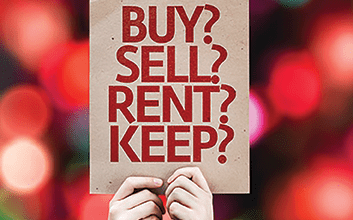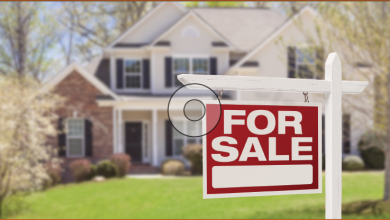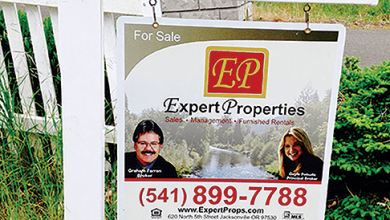To Own or Not to Own. That is the Question?
Rental Market:
The rental market has gone crazy in the past few years with three interrelated trends that have impacted the rental market and have caused rents to skyrocket in Southern Oregon and throughout the United States.
The first is the rapidly growing population. There has been very little building during the recession and it hasn’t kept up with the population growth. Along with the population growth, there has been rapid age growth in the number of young Americans. There are millions of millennials or, young adults, that have grown in age and are now moving out of their parent’s basements. In general, they do not have the money, credit scores or income to qualify for a home mortgage. Their only options are to rent or live with their parents.
Second, is the millions of families that lost their homes in the “Great Mortgage Fiasco.” Hundreds of thousands of families across the nation were faced with the unseemly choice of giving their house back to their lenders or experiencing the dread of foreclosure. Many of these families have recovered and have gone back to the housing market; but not all, as we have gone from almost 70% of American families owning their own home to 65%.
Lastly, although the “great recession” has ended we have not seen much progress in wage growth. There are millions of Americans stuck in low paying jobs and their income has not increased in the last 10 years. Just like the millennials, their only option is to continue to rent as they don’t have any extra money to save for a down payment after they pay their monthly bills.
Rent or Buy?
Because rents have risen so quickly and interest rates have stayed at an all-time low, it is now cheaper to buy than rent in many markets. A survey by Trulia.com states that, on average, owning a home is as much as 45% cheaper in the 100 largest U.S. metro areas than renting. Yesterday one of our employees just closed on her first house. She is 25 years old and will be paying about $1,000 month on her mortgage for her 2 bedroom, 2 bath home in Old East Medford, which includes property taxes and insurance. Compare her to another one of our employees that is renting a 2 bedroom, 2 bath home in Eagle Point for $1500 month. So owning can cost far less than renting, while also providing tax breaks and possible appreciation benefits.
Lending
Often the key is to secure a low down payment loan which are available from both government and commercial loans. In conjunction with using these low down payment loans, one can also ask for seller credit for most, if not all, of the closing costs.
So, from a purely numbers standpoint, right now it makes more sense to buy rather than rent. There are two catches. First, you have to qualify for a mortgage, which you will need a 580 credit score or more, and you need money for a down payment and closing costs which, for many, is the issue. So here are some ideas that may work for you to save that down payment.
How to Secure the Down Payment
The biggest challenge in buying a home will almost certainly be securing your down payment and closing costs. Whether you are trying to scrape up the 3.5% down for an FHA loan or you are planning to put down a full 20% to avoid paying PMI (principal mortgage insurance), saving for a down payment might be the largest savings endeavor you ever undertake.
Don’t fear, it can be done! If you look at it as a challenge instead of a slow deprivation-driven chore, you could own a home! Here are some creative ideas for where to find a down payment:
- Cut Your Budget’s Biggest Line Items. This is where you may spend the most money, and offer the biggest chance for big savings.
- Move back home with your parents or to a less expensive rental
- Go from two cars to one car
- Eliminate meals out
- Cancel your cable TV and put up a digital antenna
- Eliminate Your Vices. Some indulgences are expensive. By eliminating them, you save money. You might even improve your health.
- Stop smoking
- Drink less alcohol
- Cook at home rather than dine in restaurants
- Stop recreational shopping and curb your impulse spending
- Make coffee at home and skip those expensive trips to Dutch Bros
- Sell your stuff. Your garage is full of valuable stuff that you seldom use. Clear it out and make some extra cash. Here are some examples of things you may consider selling:
- ATV’s, snowmobiles, jet skis, motorcycles, boats, extra cars
- Clothes, shoes, handbags
- Supplies and equipment for hobbies you’re no longer interested in
- Workout equipment that is never used
- Furniture and antiques
- Electronics, CD’s, DVD’s, books, TV’s, Computers, old smartphones
- Rent your stuff for income
- Sites like www.gettaround.com and www.zimride.com allow you to rent out your extra seat on a trip, rent your vehicle, your boat, your motorcycle etc. to earn extra income.
- Market Your Skills and Time
- Spend your off time, evenings and weekends leveraging your professional skills or personal hobbies. Earn extra income by providing technical support, car detailing, bookkeeping, babysitting, sewing, house cleaning, dog walking, house sitting or whatever you are skilled at.
- Your Family
- If you are fortunate enough to have friends or family that can gift you money towards a down payment, this is an allowable source of down payment by the lender. You can make your case by asking for cash in lieu of gifts for weddings, a new baby, birthday(s) or graduations. This gift may even be tax deductible for the giver.
- Your Employer (401K)
- A common way to raise money for a down payment is from your 401K program at work. Many first-time home buyers turn to their 401K retirement plans and borrow the money from their own retirement savings to be used as a down payment. Just talk with your HR department before you act so you know what to expect.
So, if you are determined to save money for a down payment to purchase a home, be creative and you can be on your way to becoming a new homeowner.



